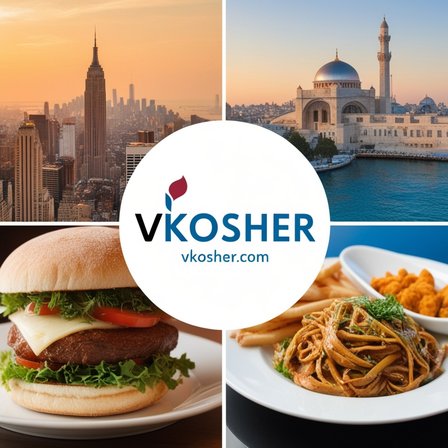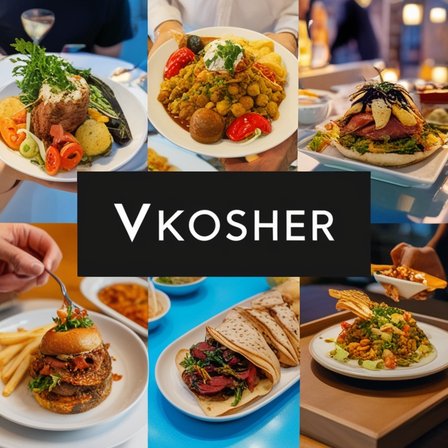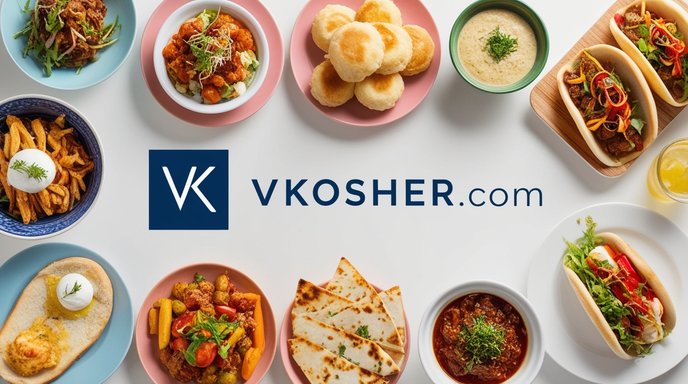Understanding Glatt Kosher: Tradition and Practice
Introduction to Glatt Kosher
The term "glatt kosher" holds significant importance in Jewish dietary laws, representing a higher standard of kashrut, the body of Jewish laws dealing with what foods can and cannot be eaten and how those foods must be prepared and eaten. Understanding glatt kosher requires delving into the intricacies of these dietary laws, which are not merely rules but are deeply rooted in Jewish religious tradition and identity.
The Concept of Kashrut
Kashrut is derived from the Hebrew word "kosher," meaning fit or proper, and refers to the set of Jewish dietary laws that determine the suitability of food for consumption. These laws are outlined in the Torah, the central reference of the religious Judaic tradition, and have been interpreted and expanded upon by rabbinical authorities over centuries.
Kashrut encompasses various aspects of food consumption, including the types of animals that are permissible to eat, the method of slaughter, the removal of certain fats and blood, and the prohibition of mixing meat and dairy. The laws of kashrut are complex and multifaceted, requiring careful adherence to ensure compliance.
What is Glatt Kosher?
Glatt kosher, often simply referred to as "glatt," is a term that originated in the context of meat preparation. The word "glatt" means "smooth" in Yiddish, and it refers to the smoothness of the lungs of slaughtered animals. According to Jewish law, the lungs of an animal must be examined after slaughter to ensure there are no adhesions or imperfections. If the lungs are free from such imperfections, the meat is considered glatt kosher.
Originally, glatt kosher specifically referred to the lungs of animals, particularly cows, in the slaughtering process. However, in modern usage, the term has broadened to imply a higher standard of kashrut in general. Today, when food products or establishments are labeled as glatt kosher, it often suggests that the kashrut standards are strictly adhered to, and the supervision is stringent.
The Importance of Glatt Kosher
For many Jews, particularly those who are more religiously observant, glatt kosher is not just a preference but a necessity. The commitment to eating glatt kosher food reflects a dedication to upholding the highest standards of Jewish law. It is a way of ensuring that the food consumed is not only kosher but also adheres to the most rigorous interpretations of kashrut.
In communities where glatt kosher is the standard, it often serves as a mark of communal identity and religious observance. It represents a deep respect for tradition and a commitment to maintaining a lifestyle that aligns with Jewish values and laws.
The Process of Certifying Glatt Kosher
The process of certifying food as glatt kosher is meticulous and involves several steps. It begins with the selection of animals, which must be from species that are permitted under Jewish law, such as cows, sheep, and goats. The animals are then slaughtered in accordance with shechita, the ritual method of slaughtering animals in Judaism.
During shechita, a trained individual known as a shochet performs the slaughter using a special, sharp knife. The process is designed to be quick and humane, minimizing the animal's suffering. After the slaughter, the lungs of the animal are inspected by a bodek, who is responsible for checking for any adhesions or imperfections. If the lungs are found to be smooth, the meat is designated as glatt kosher.
In addition to the inspection of the lungs, other aspects of the animal must also meet kosher standards. This includes the removal of certain fats and the prohibition of eating the sciatic nerve, which is a commandment derived from the story of Jacob in the Torah.
Glatt Kosher in the Modern World
In today's globalized and diverse world, glatt kosher has gained recognition beyond the Jewish community. It is often associated with high-quality food standards and is sought after by people who are looking for food that meets strict ethical, health, and cleanliness standards. As a result, many food producers and restaurants seek glatt kosher certification as a mark of quality.
The glatt kosher industry has grown significantly, with kosher certification agencies providing oversight to ensure that food products meet the required standards. These agencies, often led by rabbinical authorities, conduct regular inspections of food production facilities, from slaughterhouses to processing plants, to ensure compliance with kashrut laws.
For consumers, glatt kosher certification provides assurance that the food they are eating meets the highest standards of kashrut. This is particularly important for those who are committed to maintaining a kosher diet, as it allows them to eat with confidence, knowing that their food adheres to the strictest interpretations of Jewish dietary laws.
Challenges and Considerations
While glatt kosher represents a high standard of kashrut, it also comes with challenges. One of the primary challenges is the cost. The process of certifying food as glatt kosher is labor-intensive and requires a high level of expertise. This often results in higher prices for glatt kosher products compared to standard kosher products.
Another challenge is the availability of glatt kosher food, particularly in areas with small Jewish populations. In these regions, finding glatt kosher-certified products can be difficult, leading to limited options for those who adhere strictly to these standards.
Additionally, there is ongoing debate within the Jewish community about the necessity of glatt kosher. Some argue that standard kosher certification is sufficient and that the emphasis on glatt kosher creates unnecessary divisions within the community. Others, however, believe that maintaining the highest standards of kashrut is essential to preserving Jewish tradition and religious observance.
Conclusion: The Significance of Glatt Kosher
Glatt kosher is more than just a dietary requirement; it is a reflection of a deep commitment to Jewish law and tradition. For those who observe these standards, glatt kosher is a way of life that connects them to their faith and community. It represents the pursuit of purity, ethical conduct, and respect for religious principles.
As the demand for glatt kosher continues to grow, it remains an important aspect of Jewish life, serving as a symbol of dedication to the highest standards of kashrut. Whether for religious reasons or as a mark of quality, glatt kosher continues to hold a special place in the world of kosher food, embodying the values of tradition, integrity, and faith.




